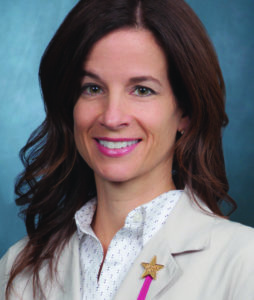
On the heels of a worldwide pandemic that has helped expose deep disparities in healthcare, the Society for Vascular Surgery (SVS) published a response—and a promise—in the form of the 2021 diversity supplement, summarizing what Society members have learned and how to move forward.
The supplement, “Creating Success in Comprehensive Vascular Surgical Care Through Diversity, Equity and Inclusion,” is an addition to the August edition of the Journal of Vascular Surgery (JVS). Bernadette Aulivola, MD, Dawn Coleman, MD, and Joseph Mills, MD, are guest editors for the supplement, available at vascular.org/DEIsupplement.
“The SVS is deeply committed to understanding inequities related to gender, race, ethnicity, age and sexual orientation, and developing strategies to make meaningful changes,” said Aulivola. She served as chair of the SVS Diversity, Equity and Inclusion (DEI) Task Force, created in 2019. The task force has since segued into an SVS committee led by Vincent Rowe, MD, and charged, in part, with assuring implementation of the task force recommendations.
“Scientific and anecdotal research has shown us that many vascular surgeons are working tirelessly to address disparities within healthcare, but new approaches are essential in making continued progress,” Aulivola said. “Publications like this supplement serve to enhance our understanding of the current status of diversity-related issues in the field of vascular surgery. The focused efforts of the SVS DEI Committee will assure that we become a stronger specialty that is better equipped to care for a diverse patient population.”
The supplement’s summary of “what we have learned and how to move forward is the measure of the moment,” said Ronald L. Dalman, MD, president during the document’s creation.
The measurement’s precedent, he said in the introduction to the supplement, lies in the 2010 JVS diversity supplement. Unlike the 2021 version, that publication focused primarily on vascular health outcome disparities among under-represented minority populations. “This year’s update turns that focus inward, to challenges within the profession itself,” said Dalman. The articles cover a variety of topic areas, promoting equity and inclusion opportunities in the SVS and in its members’ workplaces, he said.
More than a year in the making, the DEI supplement covers 16 topic areas. These include not only those that would be expected in a document such as this, like a review of healthcare disparities in vascular surgery; mentorship; inclusion and retention opportunities and challenges; and pay disparities. But it also explores the unexpected, including a study into bias and letters of recommendation. Awareness of bias has been building steadily within the SVS for more than a decade, and so have challenges to it. This forward motion culminated in 2019 in the creation of the DEI Task Force, said Dalman. The group presented its findings and recommendations to the SVS Executive Board in July 2020. The Board accepted the report and recommendations, and began an implementation plan, “underscoring our commitment to evolutionary change in both the structure and the function of the SVS,” Dalman added.
“A diverse vascular surgery workforce yields cognitive diversity, which is essential to deliver higher quality healthcare to our collective patients,” said Coleman. “Diversity, supplemented with equity and inclusion, yield a superior creative culture that will optimize the specialty of vascular surgery.” She added that “this critical culture change will empower vascular surgeons to be the best and most effective version of themselves for their patients, their learners and their peers and [it] ultimately will enhance patient care, personal and professional growth, and workforce recruitment and retention.”
The new supplement “dramatically advances” on its 2010 predecessor, said Dalman. “Our task now is to implement the structural changes necessary to ensure the future of the SVS and the wellness and professional success of our evolving membership,” he said.












